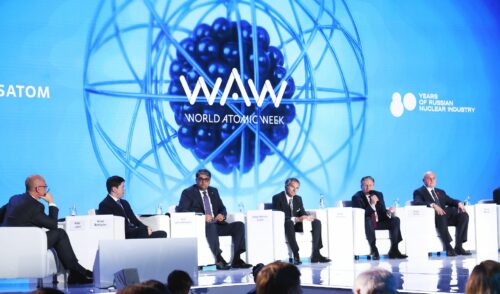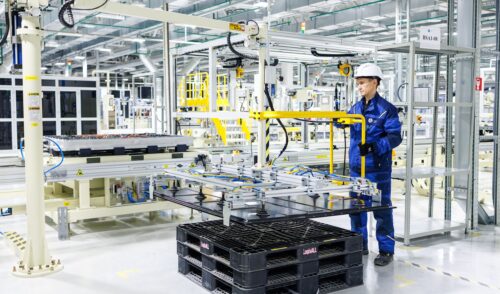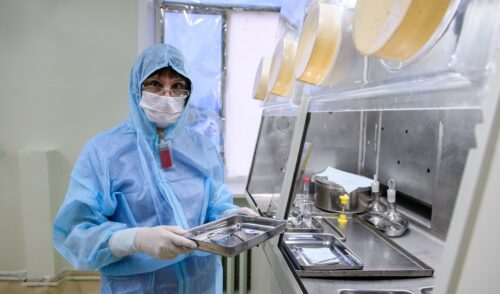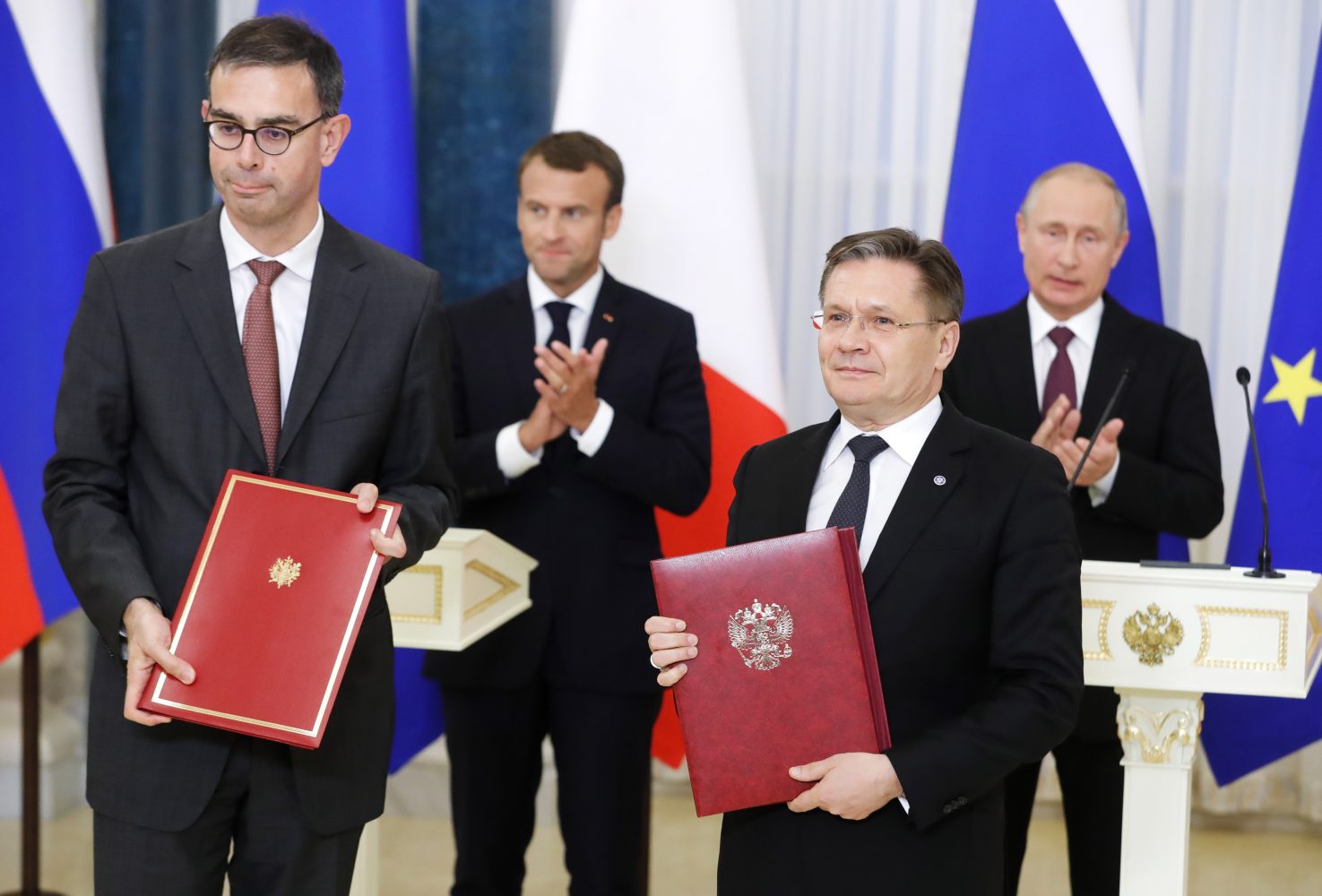
Contracts with French Accent
back to contentsThis May marks the 50th anniversary of the first contract between TENEX (now part of Rosatom) and the French Atomic Energy and Alternative Energies Commission. This was the first international contract made by TENEX for uranium enrichment services. In commemoration of this event, our today’s story is about the French nuclear industry and cooperation between Rosatom and French organizations — a cooperation that reaches far beyond supplies of enriched uranium.
Accounting for about 70 % of the national energy mix, the nuclear power industry plays a major role in supplying France with electricity. In 2020, this share decreased to 67.1 %, though. There are two reasons for that. First, the coronavirus pandemic reduced the total electricity consumption in the country by about 5 %. Second, Fessenheim nuclear power plant Units 1 & 2 were permanently shut down in February and June 2020. As a result, the installed capacity of the French nuclear generating stations decreased from 63.1 GW to 61.4 GW. In 2020, they generated 335.4 TWh of electricity. At present, France has 56 power units in operation.
Supplies of nuclear fuel products
Fifty years ago, in early 1971, the country had seven operating power units. In order to supply the French nuclear capacity with fissile materials, the French Atomic Energy and Alternative Energies Commission (CEA) and TENEX signed a contract for uranium enrichment services. The contract became a doorway for Russian uranium products to the global market and a starting point for the multi-year reliable partnership in the supplies of nuclear fuel products.
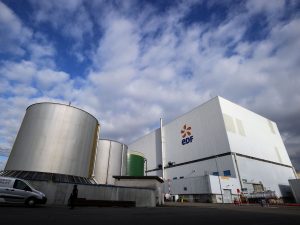 In 1974, TENEX signed a contract for the supply of enriched uranium with the French company Cogema (now Orano). The first contract with EDF was made in the early 2000s. Russian nuclear companies have supplied their French customers with nuclear fuel products for half a century, and the cooperation is up and running: long-term contracts for the supply of uranium products and uranium conversion services are still in force.
In 1974, TENEX signed a contract for the supply of enriched uranium with the French company Cogema (now Orano). The first contract with EDF was made in the early 2000s. Russian nuclear companies have supplied their French customers with nuclear fuel products for half a century, and the cooperation is up and running: long-term contracts for the supply of uranium products and uranium conversion services are still in force.
Another joint project in the nuclear fuel segment is enrichment of reprocessed uranium from French reactors and return of the obtained fissile material to France, and maintenance of EDF casks used to transport reprocessed uranium. The total price of the long-term contract is nearly USD 1 billion, which makes it one of the largest contracts in the entire history of cooperation between Russian and France.
The French party regularly audits Russian companies. The audits confirm high quality of Rosatom’s products and services.
Strategic framework
Cooperation between Russian and French nuclear companies has long reached far beyond the nuclear fuel segment. Strategic agreements are made at the highest level. In 2018, Director General of Rosatom Alexey Likhachev and General Administrator of CEA François Jacq signed a strategic document on the Russian-French cooperation in peaceful uses of nuclear energy. The presidents of the both countries attended the signing ceremony. The parties plan to strengthen cooperation in fast neutron reactors, engineering and supplies of equipment for nuclear power plants, supplies of nuclear fuel for commercial and research reactors, reprocessing of spent nuclear fuel and re-use of recovered materials, and joint projects in third countries.
In July 2019, CEA and Rosatom signed a similar strategic document on cooperation in the construction and operation of nuclear power plants, renewable energy sources, digitalization, radioactive waste and spent nuclear fuel management.
All the agreements find their way into practice.
Richer in knowledge
“When it comes to R&D in nuclear, we’re actively involved in the work on International Centre based on Research Reactors (ICERRs) scheme under the IAEA framework. Three of the centers that are part of this framework are in Europe — in France, Belgium and Russia. The MBIR project — a research facility that will be enabled with a multipurpose sodium-cooled fast-neutron reactor — also provides a unique opportunity for international R&D cooperation,” Andrei Rozhdestvin, Director of Rosatom Western Europe, noted.
In late 2020, RosEnergoAtom (Rosatom’s electric power division) renewed an agreement with EDF to extend its full membership in the Materials Aging Institute (MAI) for 2021–2024. MAI is the largest international organization specializing in the study of aging processes in different materials. Rosatom engineers and researchers study the aging of alloy, structural and polymer materials, the influence of organic compound destruction on corrosion resistance of structural materials in the primary coolant circuit of VVER and PWR reactors, etc.
Reliable equipment
In 2005, Orano (then Areva) signed a contract with Rosatom to supply depleted uranium defluorination equipment to the Electrochemical Plant (part of Rosatom) in Zelenogorsk. Another contract to the same effect was signed in 2019. This April, construction of the second DUHF defluorination unit started at the plant. For more details on uranium defluorination projects see this issue’s article Circle of Fuel.
Rosatom has also signed a number of large contracts and agreements for the supply of French I&C systems to Russian nuclear power plants.
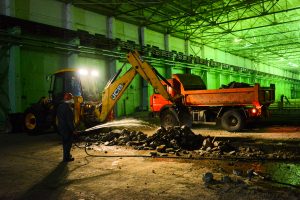 For example, Areva NP signed a contract to supply TELEPERM XS, a digital reactor protection system, to Novovoronezh II Unit 1 (Russia). In 2019, Assystem signed an agreement to provide Rosatom with consulting and engineering services during the design and commissioning of nuclear power plants.
For example, Areva NP signed a contract to supply TELEPERM XS, a digital reactor protection system, to Novovoronezh II Unit 1 (Russia). In 2019, Assystem signed an agreement to provide Rosatom with consulting and engineering services during the design and commissioning of nuclear power plants.
In June 2020, Rosatom signed a memorandum of understanding with Framatome SAS (France) and GE Steam Power to participate in the selection of a strategic investor for the Belene NPP in Bulgaria. If Rosatom becomes a strategic investor of the Belene project, Framatome SAS will be a key supplier of I&C systems for the Bulgarian station.
In January 2021, Framatome and Rosatom signed a contract to provide technical support in designing and integrating an I&C system for the Hanhikivi nuclear power plant planned to be constructed in Finland.
“We are open to cooperation with our partners across a wide spectrum of technologies that ensure and promote sustainable development — for example, in small modular reactors, in closing the nuclear fuel cycle, in hydrogen, in wind, in new materials, in storage solutions,” Andrei Rozhdestvin concluded.
TechSnabExport (TENEX) is a Rosatom company supplying nuclear fuel cycle goods and services. Its key activities are uranium production, international supplies of Russian uranium products, nuclear fuel cycle back-end services, and logistics. TENEX is also engaged in lithium mining and biofuel production.
RosEnergoAtom is Rosatom’s electric power division. The company is an operator of nuclear power plants in Russia, operating 11 generating facilities with a total capacity of 30.5 GW. Its other divisions include an R&D center for emergency response at nuclear power plants, a design and engineering department, and a technology department.


